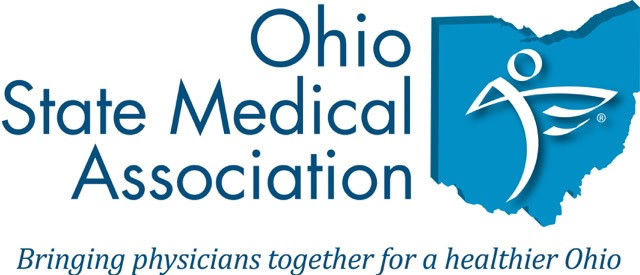Complete Story
11/04/2025
Hearings & Testimonies Continue for Insurance Reform Legislation
There has been a huge amount of legislative activity over the past two weeks on OSMA-supported insurance reform proposals in both the Ohio House and Ohio Senate, with many committee hearings held regarding these important insurance issues. Several OSMA physician members also took the opportunity to get involved and give testimony to our elected officials about how critical these issues are and their impact on patient care.
Proponent Hearings:
Several OSMA-supported insurance proposals were on the agenda for proponent testimony hearings, which is the point of the process in which parties in support of the legislation are given the opportunity to present their support to legislators.
SB 162: Takebacks
Last week, current OSMA President and practicing physician anesthesiologist Dr. John Bastulli testified alongside OSMA VP of Advocacy Monica Hueckel in support of SB 162. In the October 21 hearing of the Senate Financial Institutions, Insurance, and Technology Committee, OSMA testimonies described how SB 162 would limit the timeframe for insurance takebacks, creating fairness and financial stability for healthcare providers. Dr. Bastulli was able to provide some powerful examples directly from OSMA members that illustrated the unfairness of takebacks and the burden placed upon both physicians and patients.
Watch the testimonies here, or read the written copy here.
HB 220: Prior Authorization
This week, OSMA member and practicing pediatric physician Dr. Brad Fuller joined Monica Hueckel to testify in support of HB 220, regarding prior authorization, in a hearing in the House Insurance Committee. As a reminder, HB 220 would prohibit retroactive denials of prior authorization, except in the instance of a non-covered benefit or lack of coverage at the time of service. Additionally, it contains provisions which would require peer-to-peer reviews to be between the practitioner requesting the service in question and a clinical peer, and that peer must identify themselves, including specialty and relevant qualifications. This ensures that the individuals making these determinations are actually clinically informed enough to be able to adequately review cases for medical necessity.
OSMA testimony also explained how HB 220 builds on current Ohio law requiring drug prior authorizations for maintenance medications to treat a chronic condition to be considered valid for a year. This legislation would require that year-long prior authorization to account for dosage adjustments, allowing for physicians to adjust the dose of a medication without the need to go through the prior authorization and appeals process again. Finally, while we have yet to see this happen in Ohio, it has been reported that in other states, some insurers may be attempting to charge fees when providers appeal prior authorization denials. HB 220 contains language that would explicitly prohibit this, protecting Ohio providers from unfair additional costs during the appeals process.
Dr. Fuller detailed the burden of prior authorization in his testimony, providing a series of statistics from the American Medical Association’s 2024 Prior Authorization Physician Survey. He also provided a personal example of a young patient he was treating, with that patient struggling to access necessary chronic asthma medication due to a dosage adjustment resulting in a delay in care associated with the need to reobtain prior authorization.
Watch the testimony here, or read Monica’s OSMA testimony here, and OSMA Member Dr. Fuller's here.
SB 207: Copay Accumulators
On October 21, there was also a proponent hearing for SB 207 in the Senate Financial Institutions, Insurance and Technology Committee. SB 207, sponsored by Sen. Susan Manchester (R-Waynesfield) and Sen. Beth Liston (D-Dublin), would require health insurers to count amounts paid by or on behalf of covered individuals toward deductibles and cost-sharing requirements. OSMA is supporting this legislation alongside a coalition of other healthcare and patient advocacy organizations, and submitted written proponent testimony for this hearing.
Read Monica’s OSMA testimony here.
Sponsor Hearings:
The very first hearings held in each chamber for a legislative proposal are sponsor hearings, in which the sponsor or sponsors of the bill introduce their legislation to the members of the Committee that bill is assigned to, and make the case for their legislation’s necessity. It is an important first step and represents the first hurdle in every piece of legislation’s journey. Now that sponsor hearings have occurred, proponent hearings can soon follow.
HB 390: Collection of Copays
SPONSOR: Rep. Jean Schmidt (R-Loveland)
Would shift the responsibility of collecting a patient’s cost-sharing amount—copays, deductibles, and coinsurance—from physicians to health insurers.
Sponsor hearing: October 21, 2025, House Insurance Committee
HB 429: Prohibit Reimbursement Reduction
SPONSOR: Rep. Jim Hoops (R-Napoleon)
Would prohibit insurers from reducing reimbursement to health care providers based on:
- The insurer’s own description of that is included in the service outside of the most current CPT code in effect, the most current ICD-10 code in effect, the most current CDT code in effect, or the most current HCPCS code in effect.
- The insurer’s own description of what is included in the diagnosis code submitted on the claim outside of guidelines established by entities responsible for the code set, including the Centers for Disease Control and Prevention’s National Center for Health Statistics.
- The provider billing for additional health services, including outpatient surgery, on the same date as the covered service.
Sponsor hearing: October 21, 2025, House Insurance Committee
SB 164: Transparency in Health Plan Use of AI
SPONSOR: Sen. Al Cutrona (R-Canfield)
Would require insurer transparency regarding their use of AI tools in prior authorization determinations, and ensure that determinations are made through review of individual merits of claims by licensed clinical professionals.
Sponsor hearing: October 28, 2025, Senate Financial Institutions, Insurance, and Technology Committee
Stay tuned for more updates as the fall session is expected to continue for at least several more weeks and OSMA anticipates more hearings on key legislative issues!
